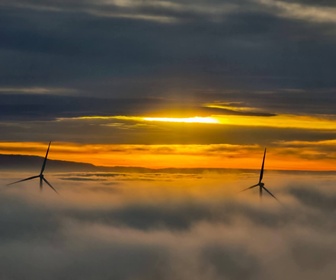The European Commission is launching 'Clean Tech Europe', a new platform to strengthen its value chains for clean energy. The new Platform aims to advance the key industries that will deliver Europe’s clean and digital transitions. These include wind and solar energy, heat pumps, storage, grids and renewable hydrogen.
The EU now wants 510 GW of wind energy by 2030, more than double the 200 GW installed in the EU today. To replace expensive and scarce natural gas as well as other fossil fuels in industry, mobility and heating the EU wants to rapidly scale up renewables-based electrification. And the EU now aims for 20 million tonnes of renewable hydrogen by 2030.
The European wind industry currently employs 300.000 people and operates 250 factories making turbines and components. To advance Europe’s technology leadership and to ensure wind turbines installed in Europe continue to use European technology massive investments in the whole supply chain are needed – from vessels to cranes, ports, research and innovation, grids, and skilled workers. But also in new and existing industrial production capacities.
The new Platform aims to strengthen the EU’s industrial footprint and advance the global competitiveness of its clean tech industries. Clean Tech Europe must now:
- Accelerate permitting: 80 GW of wind energy projects are currently stuck in permitting procedures across Europe. They must be unlocked. The REPowerEU and emergency measures to accelerate renewables permitting must be implemented without delay and applied to all permits.
- Reward the value of Europe’s clean energy supply chains: Auctions should move away from price-only and include non-price criteria, such as system-integration, sustainability, and benefits to local communities. They should avoid negative bidding. And they should be index-linked to reflect increases in input costs post-auction.
- Align trade policy with the EU’s energy agenda: EU trade policy should secure international supply chains for key raw materials and components, at the same as the EU strives to boost local and diversified sourcing and refining. This is key to the global competitiveness of the European wind industry and the wider EU economy.
- Invest in factories and infrastructure: The demand for new wind turbines is growing. The EU, national Governments and the EIB all have a role to play in supporting investments in new and upgraded wind energy production facilities. They should also facilitate investments in grids and other supporting infrastructure, such as ports.
- Create a level playing field: Europe should take a robust approach to unfairly subsidised non-European competitors. There should be a level playing field for the provision of the equipment and technology that delivers the energy transition.









